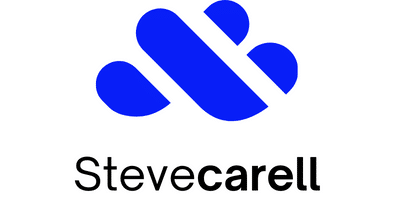Back-up and offshore hosting: the perfect anti-damage solution

Facing frequent DDoS attacks can cripple your online presence and business operations. Fighting these relentless threats requires robust and effective measures. Learn how combining DDoS protection with offshore hosting offers the ideal anti-DDoS solution. This approach not only enhances security but also provides unique advantages that can keep your servers safe and operational. Dive into our comprehensive guide to understand how this powerful combination shields your business from malicious attacks.
Understanding DDoS attacks
Distributed Denial of Service (DDoS) attacks are a prevalent threat in the digital world. These attacks aim to overwhelm a network, server, or service with a flood of internet traffic, rendering it unusable. DDoS attacks come in various forms, each targeting different vulnerabilities in the system.
A découvrir également : What Are the Challenges and Benefits of Integrating Blockchain into UK’s Public Health Records?
Definition and types of DDoS attacks
DDoS attacks can be broadly categorized into three main types: Volumetric Attacks, Protocol Attacks, and Application Layer Attacks. Volumetric attacks consume the bandwidth of the target network by sending massive amounts of data. Protocol attacks exploit weaknesses in the network protocols, causing service disruptions. Application layer attacks target specific applications, overwhelming them with requests and making them unavailable to legitimate users.
Common motives behind DDoS attacks
The motives behind DDoS attacks vary widely. Some attackers aim to disrupt business operations for financial gain or competitive advantage. Others may have political or ideological reasons, using DDoS attacks as a form of protest. Cybercriminals also use these attacks to extort money from businesses by threatening prolonged service disruptions.
Avez-vous vu cela : What’s the Future of Autonomous Public Transport in Urban UK?
Impact of DDoS attacks on businesses
The impact of DDoS attacks on businesses can be devastating. These attacks can lead to significant financial losses due to downtime, damage to reputation, and loss of customer trust. Implementing robust DDoS protection and server security measures is crucial for businesses to safeguard their online presence and ensure continuous service availability. Investing in network attack prevention solutions can also help mitigate the risks associated with these attacks.
Benefits of offshore hosting for DDoS protection
Offshore hosting provides several advantages for businesses seeking robust DDoS protection. One of the primary benefits is enhanced security. Offshore locations often have stringent data protection laws and advanced infrastructure, making them less vulnerable to attacks. This ensures that your offshore server hosting is more resilient against cyber threats, as you can see in https://koddos.net/.
Advantages of offshore hosting
- Enhanced Privacy: Offshore hosting providers are typically located in jurisdictions with strong privacy laws, which can help protect sensitive information from prying eyes.
- Reduced Risk of Legal Issues: By using offshore internet hosting, businesses can avoid certain legal challenges and regulations that may be present in their home country.
- Improved Performance: Offshore servers are often equipped with state-of-the-art technology, ensuring high performance and reliability.
How offshore locations enhance security
Offshore locations enhance security by leveraging advanced technologies and robust infrastructure. For instance, many offshore hosting providers offer Anti-DDoS infrastructure as part of their services. This includes features like advanced filtration systems that detect and block abnormal traffic patterns before they can impact your operations.
Additionally, offshore hosting providers often have redundant systems and multiple data centers, ensuring continuous uptime even during an attack. This redundancy is crucial for maintaining service availability and protecting against potential downtime.
Legal considerations in offshore hosting
When considering offshore server hosting, it's essential to understand the legal implications. Different countries have varying regulations regarding data storage and privacy. It's crucial to choose an offshore hosting provider that complies with international standards and has a clear understanding of the legal landscape.
In conclusion, opting for offshore internet hosting can provide businesses with enhanced security, privacy, and performance, making it a viable option for those looking to protect themselves from DDoS attacks.
Anti-DDoS solutions and best practices
Implementing effective anti-DDoS solutions is crucial for safeguarding your business against potential threats. These solutions range from basic protection measures to advanced, custom DDoS mitigation strategies.
Overview of anti-DDoS technologies
Anti-DDoS technologies are designed to detect and mitigate attacks before they can impact your operations. Solutions like Cloudflare's DDoS protection utilize a global network to absorb and neutralize malicious traffic. This ensures continuous uptime by handling attacks locally, without rerouting traffic to distant centers. Advanced filtration systems are also employed to recognize and block abnormal traffic patterns, enhancing the resilience of your infrastructure.
Implementing multi-layered security strategies
A multi-layered security strategy is one of the best anti-DDoS practices. This approach involves deploying multiple defenses at different network layers to create a robust security posture. For instance, combining application layer security with network-level protections can effectively counteract various attack vectors. Utilizing services like OVHcloud’s Anti-DDoS infrastructure and Cloudflare Spectrum for TCP/UDP application protection can provide comprehensive coverage.
Best practices for mitigating DDoS attacks
To mitigate DDoS attacks effectively, businesses should adopt several best practices:
- Regular Security Audits: Conduct frequent audits to identify and rectify vulnerabilities.
- Traffic Analysis: Use advanced monitoring tools to analyze traffic patterns and detect anomalies early.
- Redundancy: Implement redundant systems and multiple data centers to ensure service availability during attacks.
- Custom DDoS Mitigation: Tailor your DDoS protection to your specific needs. Custom solutions can address unique vulnerabilities and provide targeted defense mechanisms.
By integrating these practices and leveraging advanced anti-DDoS solutions, businesses can significantly reduce the risk and impact of DDoS attacks.
Comparing leading DDoS protection providers
Choosing the right DDoS protection provider is critical for maintaining the security and availability of your online services. Here, we compare some of the best DDoS protection providers, focusing on their features, cost-effectiveness, and customer feedback.
Features of Top DDoS protection providers
OVHcloud offers a comprehensive range of advanced DDoS protection solutions, including Anti-DDoS infrastructure, Game DDoS Protection, and SSL Gateway. Their services cater to various needs, from small businesses to enterprises requiring reliable DDoS defense. OVHcloud’s Anti-DDoS infrastructure is designed to mitigate attacks at both the network and application layers, ensuring robust protection.
Cloudflare provides extensive DDoS protection through its global network, which mitigates attacks locally in over 320 cities. This reduces latency and improves performance during an attack. Cloudflare Spectrum extends protection to TCP/UDP applications, maintaining uptime across various protocols. Their Magic Transit service safeguards network infrastructures and data centers from sophisticated layer 3 and 4 attacks.
AbeloHost offers two tiers of Anti-DDoS protection. The Standard plan is always active, providing essential protection against small-scale attacks. The Premium plan, costing €50 per month per protected domain, includes advanced filtration systems that detect and block abnormal traffic patterns, offering up to 100Gbps protection.
Cost vs. value analysis
When comparing the cost and value of advanced DDoS protection, it’s essential to consider the level of security and additional features provided. OVHcloud’s solutions are highly scalable, making them suitable for businesses of all sizes. Their pricing is competitive, especially considering the range of services offered, such as managed Bare Metal Essentials and high-performance computing options.
Cloudflare’s pricing is justified by its vast network capacity of 280 Tbps and 24/7 support. The rapid setup and ease of integration are significant advantages, making it a preferred choice for enterprises seeking reliable DDoS defense.
AbeloHost’s Premium Anti-DDoS plan is cost-effective for businesses that frequently experience attacks. The plan’s advanced filtration systems ensure minimal downtime, providing substantial value for the price.
Case studies and testimonials
Cloudflare has received positive feedback for its ability to absorb significant malicious traffic and maintain continuous uptime. Customers appreciate the service’s effectiveness in securing public web infrastructure and preventing disruptions.
OVHcloud clients have praised the reliability of their Anti-DDoS infrastructure, noting its effectiveness in mitigating both volumetric and application-layer attacks. The comprehensive range of services, including AI, Machine Learning, and Deep Learning servers, adds significant value.
AbeloHost users have reported satisfaction with the Premium Anti-DDoS plan, highlighting its capability to handle large-scale attacks and maintain service availability. The plan’s affordability and advanced features make it a popular choice among businesses requiring robust protection.
For those seeking advanced DDoS protection, providers like OVHcloud, Cloudflare, and AbeloHost offer diverse solutions tailored to various needs. By evaluating the features, cost, and customer feedback, businesses can select the most suitable provider to ensure reliable DDoS defense.
Enhancing web hosting security
Securing your web hosting environment is vital to protect sensitive data and maintain service availability. Web hosting security encompasses various measures to safeguard servers and websites from cyber threats.
Importance of secure web hosting
Secure web hosting is crucial for businesses to defend against cyber-attacks and data breaches. A secure hosting environment ensures that your website remains operational, protecting your brand reputation and customer trust. Robust security measures prevent unauthorized access, data theft, and service disruptions, which can lead to significant financial losses.
Key features to look for in a secure hosting provider
When selecting a hosting provider, prioritize those offering comprehensive security features. Anti-DDoS infrastructure, SSL Gateway, and DNSSEC are essential for mitigating attacks and securing data transmission. Providers like OVHcloud, with their Managed Bare Metal Essentials and Veeam Enterprise Plus, offer advanced data protection and disaster recovery solutions.
Additional measures to protect hosting environments
Implementing hosting security best practices involves regular security audits, traffic analysis, and redundancy. Utilize Identity and Access Management (IAM) and Key Management Service (KMS) for secure data management. Ensure your provider offers load balancers, private networks, and OVHcloud Connect to enhance connectivity and resilience against attacks.
Future trends in DDoS protection
As cyber threats evolve, so do the strategies and technologies to counter them. The future of DDoS protection hinges on leveraging advanced technologies and innovative solutions to stay ahead of attackers.
Emerging technologies in DDoS protection
One of the most promising advancements in DDoS protection is the integration of cloud-based DDoS protection. These solutions utilize the vast resources of the cloud to absorb and mitigate attacks, ensuring minimal disruption to services. By leveraging global networks, cloud-based solutions can distribute the load and neutralize threats more efficiently than traditional on-premises systems.
The role of AI and machine learning in cybersecurity
Artificial Intelligence (AI) and Machine Learning (ML) are becoming indispensable in the realm of cybersecurity. These technologies enable internet security solutions to detect and respond to threats in real-time. AI and ML can analyze vast amounts of data to identify unusual patterns and behaviors indicative of a DDoS attack. By continuously learning and adapting, these systems can predict and thwart attacks before they cause significant damage.
Predictions for the future of internet security solutions
Looking ahead, cybersecurity strategies will increasingly rely on cloud-based DDoS protection and AI-driven solutions. The integration of AI and ML will enhance the precision and effectiveness of threat detection, reducing the window of vulnerability. Additionally, as cyber threats become more sophisticated, there will be a greater emphasis on developing proactive measures rather than reactive ones. This shift will involve creating more robust and adaptive internet security solutions capable of withstanding the evolving landscape of cyber threats.
